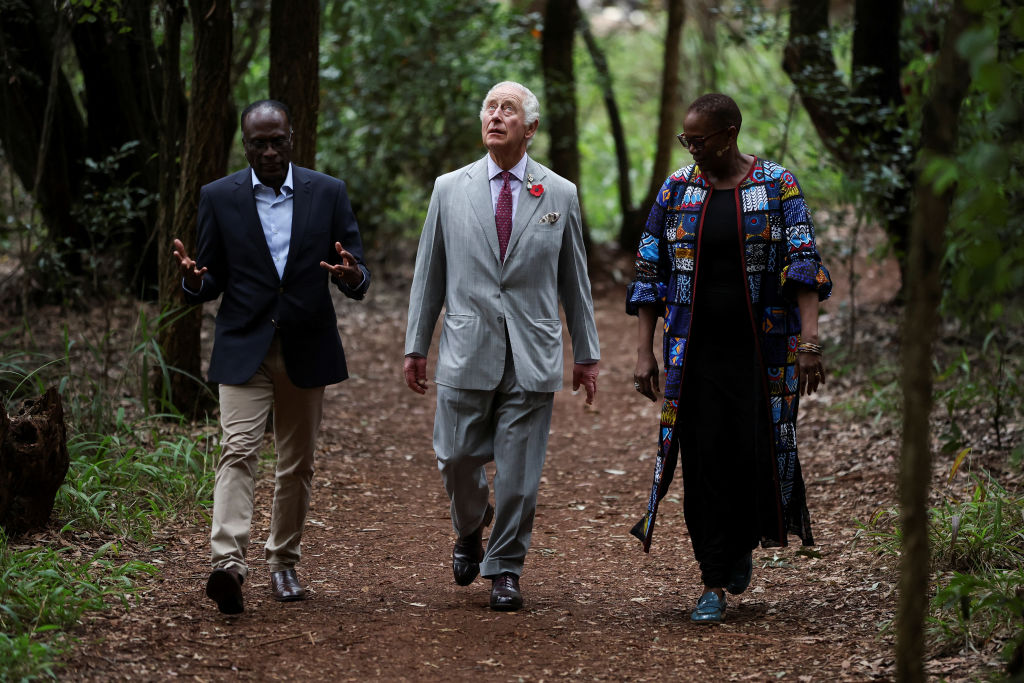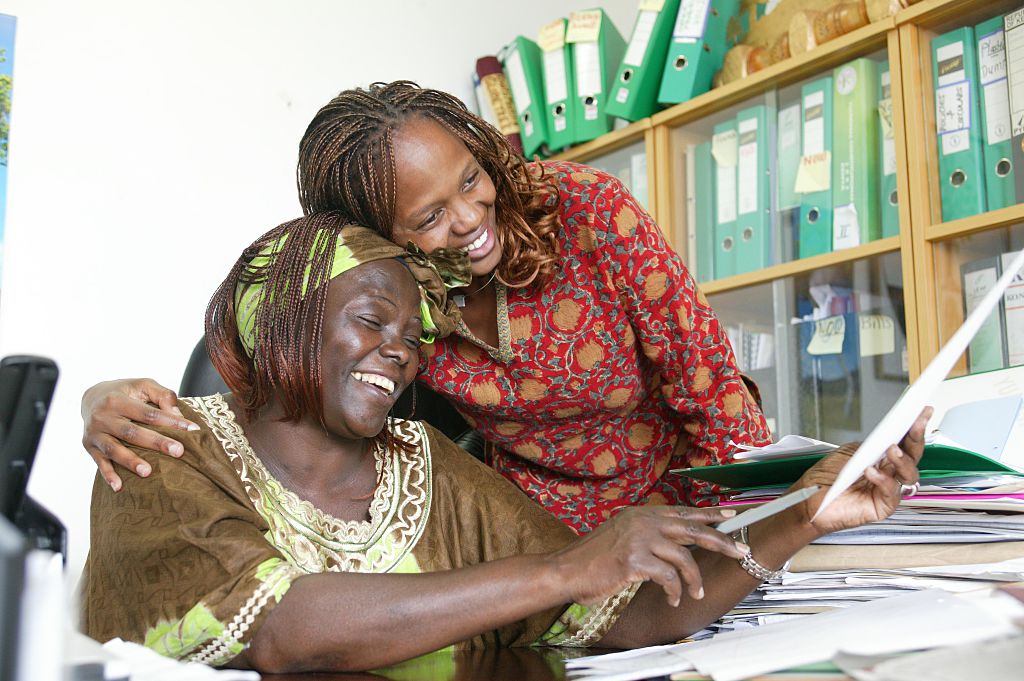The managing director for Africa and Global Partnerships at the World Resources Institute, Wanjira Mathai has led the green belt movement in Kenya as the former chair, the organization her mother, the late Wangari Maathai founded in 1977. From Nairobi, she spoke to FORBES AFRICA about issues such as climate change, youth leadership and landscape restoration – crucial conversations as she honors the 20th anniversary of her mother’s Nobel Peace Prize. here are exclusive excerpts from the interview.
Q. Twenty years on since your mother, Professor Wangari Maathai, won the Nobel Peace Prize, how much does she influence your thinking even now?
A. We are working on a year-long celebration of the 20 years of the Nobel prize. In 2004, my mother was the first environmentalist and first African woman to receive the prize, and it has so many moments of resonance with things that we are still realizing 20 years later. We feel that it’s really important to unpack the power of that prize, the foresight that she had, a lot of the warnings that she gave us, and just the way she so effortlessly and brilliantly wove sustainability with the environment. That message still resonates, and she made history 20 years ago. The power, beauty, wisdom and genius of the Green Belt Movement is really showing up again in ways that we had hoped would continue. I’m really proud of what they’re doing now.

Q. How far did this upbringing by a strong woman inspire you? Is being an environmentalist something you always wanted to do?
A. Actually, quite the contrary. My entire educational career was in public health, so I went in a completely different path. I was a scientist, and I remember feeling that we don’t all have to do the same thing, and it was really important that we do something different, because she’s done the environment thing. But I think, in retrospect, my mother planted the seed in all of us, actually in the family, but also in us as a country. A lot of what she said, a lot of what she did, a lot of what she wrote was often always for posterity.
Loading...
[Growing up], we used to live in a rather small compound, and in that space, [my mother made us] plant something all the time. If people asked where we lived, they would [be told], ‘just follow the trees’, because it was the only compound, about a quarter of an acre, that was packed with green vegetation. It does influence your sense of what’s beautiful…
I was working very happily in Atlanta in public health, working on diseases I had never heard of. My mother would always say, a healthy environment supports healthy people. Everything she did and said was about the environment – the food we eat, the air we breathe. She was so clear the environment was central to who and what we are. And if we destroy the environment, we destroy ourselves. In public health too, we would come back to the same conclusion; we were dealing with diseases that had to do with polluted water or contaminated water, with the lack of sanitation, with mosquitoes carrying these diseases, all of them had to do with an environment in distress, or an environment out of balance. In retrospect, it showed me that my mother was right. The environment is everything. She colored the environment constantly with this deep sense of beauty and wonder, and I think that had to have an influence on us, that would manifest much later. Her message, her energy, her aura, her charisma, captivated the world in a way we never appreciated or understood then.
I had the sheer gift of working with my mother, traveling with her, meeting some of the most extraordinary leaders and humans around the world, and just feeling like I was the luckiest person in the world.
[When she passed], people were like, ‘how is it going to be to live in the shadow of this giant’, and I remember thinking in my heart and saying, ‘I’m not living in her shadow, I’m basking in her light’…
We set up the Wangari Maathai Foundation, focusing on youth leadership. It continues to carry the legacy work. And it’s actually the foundation that’s leading the 20-year celebration [of her Nobel prize], because we’re saying this is part of the legacy. The Green Belt Movement continues, I then moved to chair the foundation. Then I joined the World Resources Institute, leading the Africa strategy work, but I feel, in many ways, this is like the intersection of everything I’ve done, from the environment to public health work. I feel so energized, I feel lucky to have the global reach that I have as a global partnership director, but I also feel so grounded in the work that is happening, and that is a privilege.
Q. You were in Cape Town in November 2024 as a member of the Earthshot Prize Council which also includes names such as Prince William, Queen Rania, Cate Blanchet and Dr Ngozi Okonjo-Iweala. What was the experience like?
A. The Earthshot Prize is bigger than any prize. 2030 is around the corner, and we need some really big, bold ideas that will lead to transformative change. All the finalists of the prize, 15 of them, become part of an ecosystem of support second to none. It’s not just the prize itself. They’ve been able to raise their visibility and the prominence of the work they do. It’s an ecosystem of support building catalytic, transformative change, and in the sectors that are most important in the environment. It’s a privilege to sit on the Prize Council, with some of the people I most admire. And it’s so normal – everybody’s grappling, everybody shares their opinions. You don’t have to all agree, but we all get to the same place in the end.
Q. What’s it like working with Prince William?
A. On the jury, he’s just a jury member like the rest of us. He gives his opinion, shares what he’s saying and you agree or not, and he literally makes it so easy. He’s a humble human and not there believing he’s doing it better than someone else. It’s the service. He’s actually also in awe of what the prize has achieved. He was really grateful for the council, but also spent a lot of time with the prize winners. He was very accessible and approachable. He was very generous.
Q. In 2024, you announced $17.8 million in funding for 92 local land restoration groups as part of the WRI’s partnership with the TerraFund for AFR100 initiative.
A. AFR100 is a pan-African country-led effort to restore 100 million hectares. It was a deliberately huge target as ambition has to be high, and that ambition was getting governments to make a commitment around how much they will restore. They all made commitments. And actually, we beat the 100-million-hectare target, but the real work is in where exactly is the restoration going to happen and who is going to do it etc. We saw the AFR100 transform into multiple other movements…
Q. With Africa’s great youth dividend, how do you get the youth to be so involved and compassionate about the environment? They seem to be so much more driven than the previous generations.
A. Anyone who’s watching Kenya right now knows that that generation is extremely activated, not necessarily because they care so much about one thing or the other, but it’s really about their deep sense of justice. They feel that accountability and integrity are the most important things. If your job is to deliver ABC, deliver it. If you don’t, they actually have the agency and the power to do something about it. My generation was different. We came from a dictatorial environment where we were actually fearful of challenging government authority. This generation doesn’t have any of that fear, and that’s really inspiring to see, because they perceive that you should be doing the right thing, public opinion notwith- standing. It’s a very refreshing sense of justice… They care about how they are governed. We have 70% of people in Kenya who are under the age of 35. It’s a very interesting time to see what’s happening. I’m really inspired by them. They need our solidarity. They need our commitment.
Q. You were named one of Time magazine’s 100 Most Influential African Women in 2018, 2020 and 2021. Last year, you were named one of its 100 Most Influential Climate Leaders. It must feel special.
Loading...
